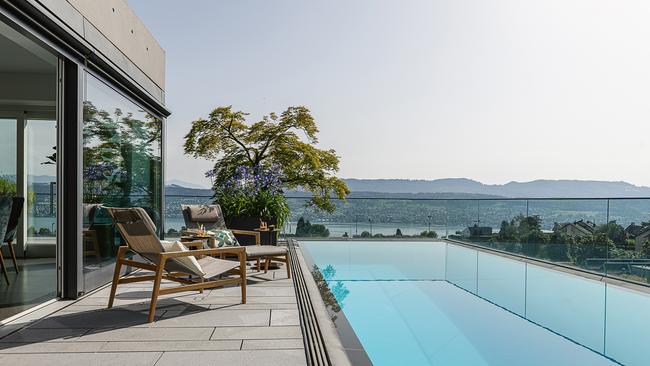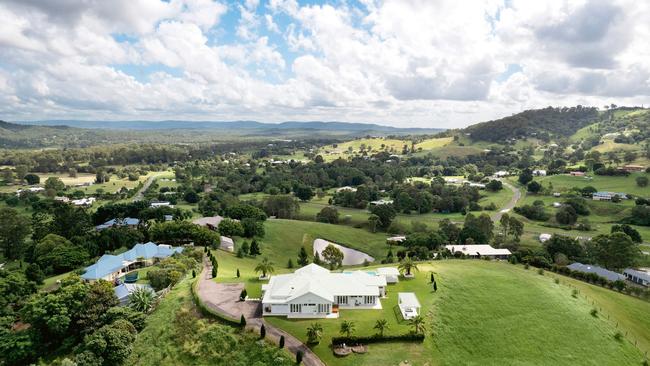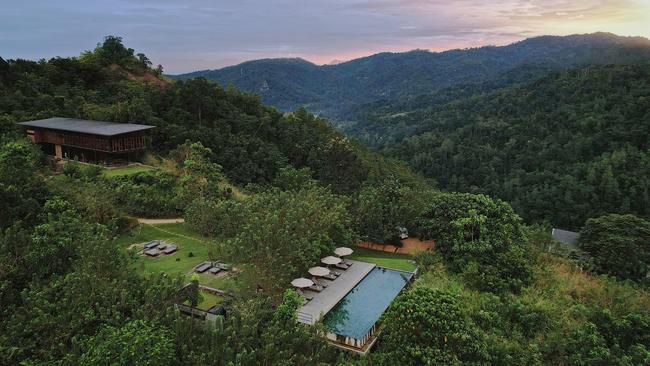The luxury retreats that cost $165,000 to treat C-suite burnout
Some high-end rehab clinics report a 684 per cent increase in inquiries for stress and burnout.

The five-star health retreat was once the go-to getaway for burnt-out chief executives; a relaxing – and adequate – pause between the incessant demands and obligations that come with running a multinational company.
Before round-the-clock workdays became the global standard for big business, anything less serious than a diagnosed mental health or addiction issue seemed fixable with a five-day regimen of massage, yoga and green juices.
But as our capacity to literally and metaphorically switch off has declined, so too has our mental and physical health.
Checking in for a week of coffee enemas and sound baths seems more like putting Band-Aids on bullet holes when you add to this the impact of a global pandemic, the rising cost of living and increasing rates of lifestyle-related illness.
Until recently, the collective perception of rehab was that it was the last resort for Hollywood celebrities and drug addicts; a clinical facility involving group therapy and prison-like contraband checks.
But for those struggling with the pressures of running some of the world’s biggest companies, luxury rehabilitation clinics – which offer personalised, clinical support, five-star amenities and the promise of privacy and discretion – are becoming their first choice for a mental health reset.
And clinics can’t keep up with the demand.

“We’ve seen a 684 per cent increase in inquiries for stress and burnout since covid,” says Ruth Limkin, founder of private rehabilitation retreat The Banyans. The retreat, located on a sprawling estate in the Gold Coast hinterland, is one of the growing number of facilities offering professional medical treatments alongside an experience that blends therapy with the comforts of a five-star vacation.
“Many of our clients are executives who got themselves, their organisations and their families through the pandemic, but now find themselves running on empty. They’re exhausted and they need time to recover.”
Don’t miss your copy of the 82-page entertaining issue of WISH magazine in The Australian available on Friday, December 6
Workplace burnout is a growing problem on every rung of the corporate ladder. Daily stress was reported by 48 per cent of Australian workers in the Gallup 2024 State of The Global Workplace Report, seven per cent higher than the global average.
For C-suite executives, the pressure to adapt to changing workplace regulations, manage remote teams and keep business afloat during the pandemic caused many to experience severe burnout, develop unhealthy coping strategies and engage in increased use and abuse of substances.
“Leaders had to navigate uncharted waters, often putting their own wellbeing last,” Limkin explains. “Now that the initial crisis has passed, they’re recognising the toll it’s taken and they’re seeking help.”
“I needed time out,” Tim*, a former guest of The Banyans, tells WISH. The managing director of a multinational company contacted the clinic for help to address his alcohol dependency, which had escalated in parallel with his corporate success. “I specialised in buying, restructuring and selling companies in various industries and gradually as success and fortune came my way, so did my capacity to consume more alcohol,” he says.
The clinic’s level of discretion, one-on-one therapy sessions and strict policy regarding technological communication (limited to exceptional circumstances) convinced the Sydney-based chief executive to join its program. “I needed to have no distractions, [so that I could avoid] not looking at myself,” he says. “I was given time to unravel my history and thought patterns, then gently given an alternative way to different ideas of thinking which eventually led to a new perspective of myself.”
Switzerland is famous for many things, including watchmaking, chocolate, stunning alpine landscapes and luxury rehab and wellness resorts.
Paracelsus Recovery, a clinic in Zurich catering to the ultra-rich, offers four-week programs addressing conditions ranging from anxiety and depression to addiction and eating disorders.
Its chief executive Jan Gerber has also witnessed an increase in burnout among high-level executives, which has led to growing demand for specialised support.
“Mental health is worsening all over the world,” Gerber says.
“It’s well established that wealth can sometimes be detrimental to mental health. We’re seeing a disproportionately growing number of ultra-high-net-worth individuals seeking treatment.”

At The Kusnacht Practice, another of Switzerland’s top rehab offerings, executives can check in to one of its luxury villas overlooking Lake Zurich and undertake the month-long Residential Leader Retreat, a program specifically designed to address burnout, depression and other health hazards synonymous with running a global business.
The needs of billionaires and leaders of multinational corporations are unique, explains Gerber, so for clients at Paracelsus, which also has a clinic in the UK, every aspect of their program is personalised. “They’re looking for confidentiality, luxury amenities and providers who are ‘culturally competent’; in other words, who have experience with and understand the woes of the wealthy demographic,” he says.
And for this, they pay a premium, with the clinic’s comprehensive program priced in the vicinity of $165,000 a week.
This includes accommodation in one of the clinic’s luxury penthouses, access to its fleet of chauffeured Bentleys, gourmet meals specific to individual nutrient needs and a staff of 15 – including a maid, personal chef, driver and team of medical experts – available around the clock. While each stay is customised to individual needs, a day on the program usually involves multiple private therapy sessions punctuated by lavish and restorative wellness treatments including acupuncture, IV vitamin infusions, massage and equine therapy, all based on the results of the client’s lab work analysis and individual preferences.
Last year The Banyans opened a second retreat to reduce growing wait times, “because when people are ready to get help, they need to move quickly”, Limkin explains. “Sometimes we can accommodate clients the same day they contact us.”
“We’re quite sought-after internationally because there are very few places like us. We offer excellent clinical and medical care, and it’s all one-on-one therapy with a holistic approach,” she says. “Our clients can see 14 different clinicians in a week, covering everything from psychology to exercise physiology. It’s not just about treating symptoms but addressing the core issues that contribute to mental health challenges.”
Increasing demand for wellness sanctums with a more clinical focus has also led to an increase in traditional health retreats that have added a clinical element to their holistic offerings.

Wellness offerings at Santani Wellness Kandy, a striking resort overlooking the lush Knuckles mountain range in Sri Lanka, include packages for guests seeking help for minor issues such as disrupted sleep and low energy as well as more complex health problems including addiction, trauma and chronic illness.
One of the biggest differences between luxury rehab clinics and other health retreats is aftercare, which Limkin explains is crucial for improving the chances of achieving lasting positive outcomes.
But while recovery and treatment are important tools in mental health care, Limkin says a more preventative approach is needed to protect those atop the corporate ladder. “When we think about workforce wellbeing, we don’t always think about the C-suite. We expect them to look after everyone, but we don’t look after [them]. And so boards need to be having more conversation around executive wellbeing.”
* Name changed to protect guest’s privacy.
This story is from the December issue of WISH.





To join the conversation, please log in. Don't have an account? Register
Join the conversation, you are commenting as Logout